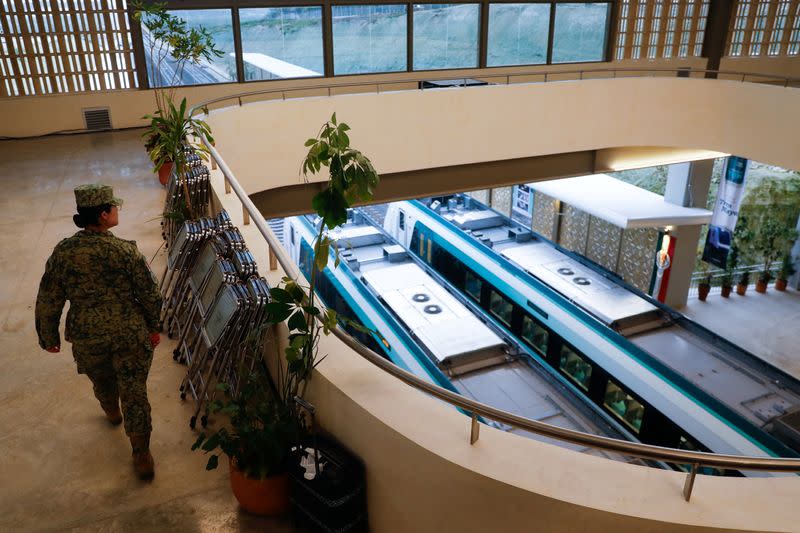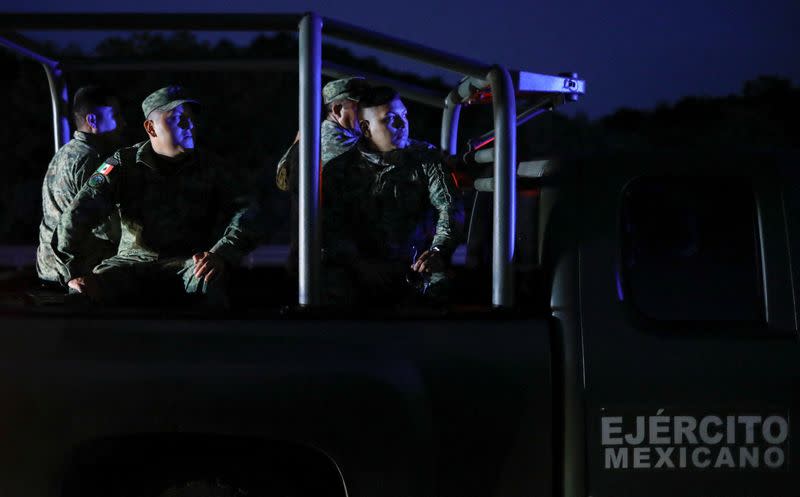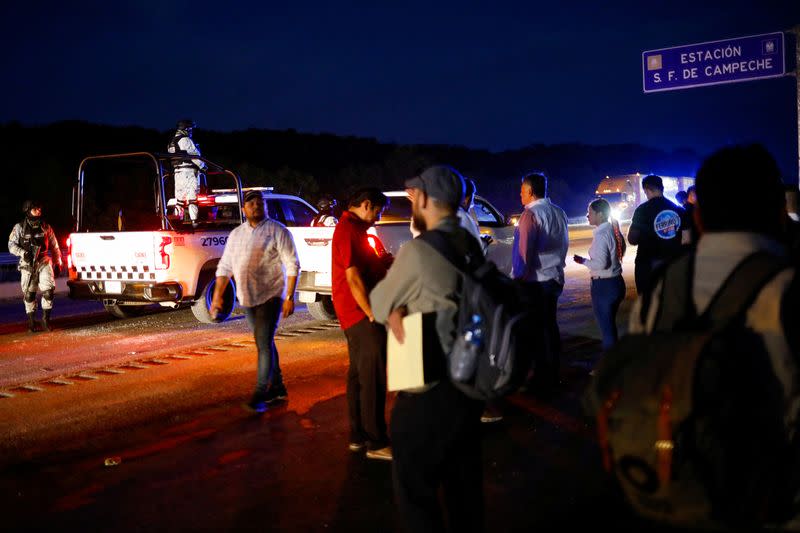Mexico's flagship train inauguration masks delay, cost concerns
- Oops!Something went wrong.Please try again later.
By Cassandra Garrison
MEXICO CITY (Reuters) - Mexico is set to inaugurate a tourist train that is a flagship infrastructure project of President Andres Manuel Lopez Obrador, though experts say it is still a long way from being fully operational, with the opening rushed.
"It's the most important public work in the world," Lopez Obrador said recently of the 1,554 kilometer-long (965 mile) project.
An official ceremony on Friday will launch the first section of the so-called Tren Maya, a track from the southern state of Campeche to the tourist hotspot of Cancun.
Another section from Palenque to Cancun is expected to be inaugurated by the end of December, and the remaining routes will be up and running in February, the government says.
But experts cast doubt on the timeline. The project is far from complete, according to an aide to Lopez Obrador and a person involved in the construction, who spoke on condition of anonymity. When exactly it will be is unclear, they said.
Originally projected at $7.5 billion, the Tren Maya will cost more than $28 billion, government officials have said. Tickets will range from 1,166 to 1,862 pesos ($67.45 to $107.72).
It is one of several signature Lopez Obrador works battling delays and spiraling costs. A refinery under construction in southern Mexico has yet to produce usable gasoline despite being inaugurated in 2022. A new Mexico City airport he opened over 20 months ago has yet to draw much passenger traffic.
Lopez Obrador had pledged to finish the train by the end of 2023, which he says will create jobs and boost connectivity.
Hold-ups and legal challenges have plagued its progress. Environmental activists and scientists argue the construction critically endangers a delicate below-ground ecosystem and essentially splits the jungle in half.
"In terms of safety, part of the delays in the project is precisely because of these points ... The project has been changed several times," said another expert who participated in the government's environmental impact study.
Speaking on condition of anonymity, the expert told Reuters there are unfinished sections between Tulum, Xpujil and Escarcega. To conclude on time would take massive, hitherto lacking, coordination between all the project's participants, he added.
It was a mad rush to the December inauguration, he said.
Mexico's defense ministry, which is running the project, did not respond to requests for comment.
On Wednesday, a group of activists and divers entered a cave directly below the construction in Quintana Roo state in the Yucatan peninsula to highlight the train line's impact on a vital part of the local ecosystem.
It is one of hundreds of subterranean caves carved out from soft limestone bedrock by water over millions of years over which the train will pass. Underground pools, known as cenotes, are a main source of fresh water to countless communities and wildlife in the peninsula.
"We have no idea what is going to happen to our water," said activist Cristina Nolasco. "We should have done this in a sustainable way that can also guarantee the structural resilience, and we're not doing that."
($1 = 17.2857 Mexican pesos)
(Reporting by Cassandra Garrison; additional reporting by Dave Graham and Jose Luis Gonzalez; Editing by Sonali Paul)





